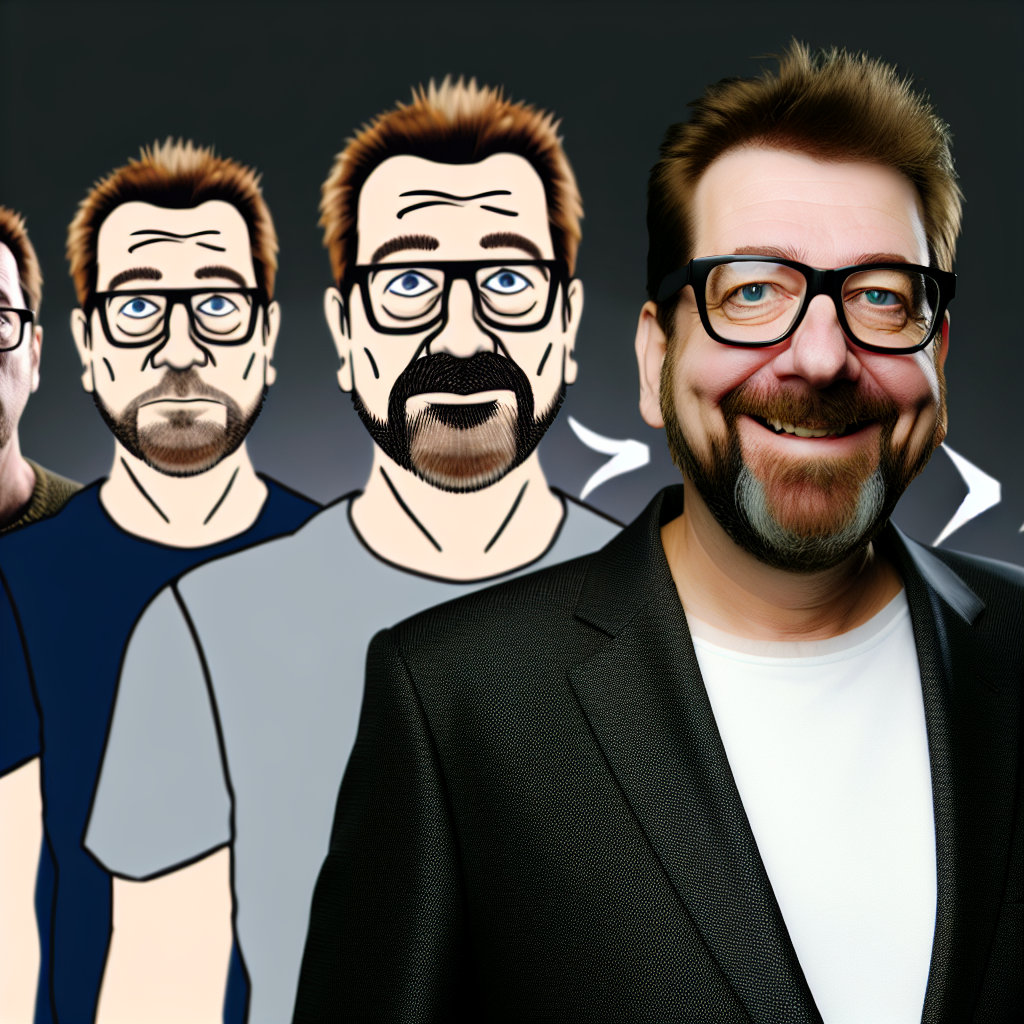
Jeff Ross, often hailed as the “Roastmaster General,” is a prominent American comedian renowned for his sharp wit and insult comedy. This article delves into his early life, career milestones, and lasting impact on comedy. From his beginnings in stand-up to headlining celebrity roasts, we’ll explore how Ross transformed roasts into a cultural phenomenon, offering insights into his techniques, controversies, and contributions beyond the stage. Join us in uncovering the man behind the microphone.
Early Life and Stand-Up Roots
Born Jeffrey Ross Lifschultz on September 13, 1965, in Newark, New Jersey, Jeff Ross grew up in a Jewish family that valued humor as a coping mechanism. His father passed away when he was young, which influenced his comedic style, often blending personal pain with punchy insults. Ross attended Jonathan Dayton High School and later Boston University’s College of Communication, where he honed his skills in film and broadcasting.
Entering the comedy scene in the late 1980s, Ross performed at open mics in New York City clubs like Catch a Rising Star. His big break came in the 1990s when he appeared on shows like Late Night with Conan O’Brien. What set Ross apart was his fearless approach to insult comedy, drawing inspiration from legends like Don Rickles. He developed a signature style that combined observational humor with roasts, making audiences laugh at uncomfortable truths. This foundation paved the way for his specialization in celebrity roasts, where he learned to balance edge with empathy, ensuring his jabs landed without alienating subjects.
Rise to Fame Through Roasts and Media Ventures
Building on his stand-up roots, Jeff Ross skyrocketed to fame in the 2000s through Comedy Central’s roasts. His debut at the 2001 Friars Club roast of Hugh Hefner showcased his talent for crafting personalized, biting humor that resonated widely. Nicknamed the “Roastmaster General” by Shaquille O’Neal, Ross became a staple, roasting figures like Pamela Anderson, Donald Trump, and Justin Bieber. These events not only boosted his visibility but also evolved the roast format into must-watch television, blending celebrity culture with unfiltered comedy.
Beyond roasts, Ross expanded into writing, producing, and acting. He created the documentary Patriot Act: A Jeffrey Ross Home Movie (2005), which humorously yet poignantly documented his USO tours entertaining troops in Iraq. His stand-up specials, like Jeff Ross Roasts America (2012), tackled social issues through roasts of everyday people. Ross also ventured into podcasts and books, such as I Only Roast the Ones I Love, sharing techniques on using humor to navigate life’s absurdities. Despite controversies, like backlash from sensitive topics, his work has influenced a new generation of comedians to embrace bold, boundary-pushing material.
Legacy and Influence in Modern Comedy
Jeff Ross’s legacy extends far beyond individual performances, reshaping comedy by popularizing roasts as a mainstream art form. He has mentored up-and-coming comedians and collaborated with stars like Dave Chappelle, fostering a community that values clever insults as social commentary. His appearances on shows like Curb Your Enthusiasm and Dancing with the Stars highlight his versatility, while initiatives like roasting criminals in his Jeff Ross Roasts Criminals special demonstrate comedy’s potential for empathy and reform.
In an era of cancel culture, Ross navigates sensitivities by emphasizing consent and context in roasts, teaching that humor can heal divisions. His enduring appeal lies in making the powerful laugh at themselves, promoting humility through hilarity.
In summary, Jeff Ross has carved a unique niche in comedy, evolving from a New Jersey kid with a knack for insults to the undisputed Roastmaster General. Through his early struggles, iconic roasts, and diverse ventures, he has not only entertained millions but also redefined insult comedy’s role in society. For aspiring comedians or fans, Ross’s journey reminds us that sharp wit, when wielded wisely, can bridge gaps and spark meaningful conversations—proving laughter truly is the best medicine.